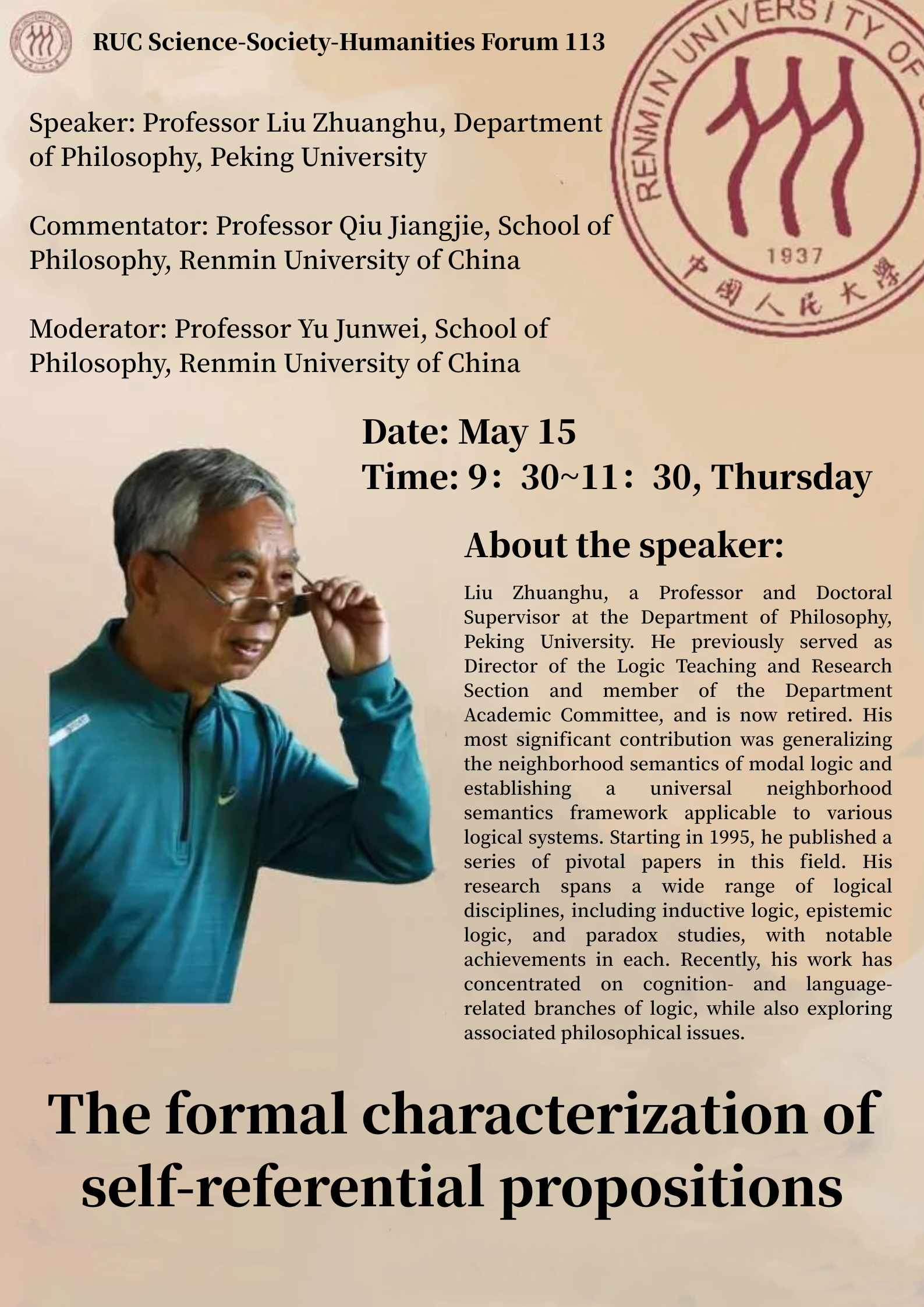Speaker: Professor Liu Zhuanghu, Department of Philosophy, Peking University
Commentator: Professor Qiu Jiangjie, School of Philosophy, Renmin University of China
Moderator: Professor Yu Junwei, School of Philosophy, Renmin University of China
Date: May 15
Time: 9:30~11:30, ThursdayVenue: Room 621, Humanities Building, Renmin University of China
About the speaker:
Liu Zhuanghu, a Professor and Doctoral Supervisor at the Department of Philosophy, Peking University. He previously served as Director of the Logic Teaching and Research Section and member of the Department Academic Committee, and is now retired. After graduating from the Department of Mathematics in 1982, he joined the Department of Philosophy, specializing in mathematical logic. His first influential paper, “The Structures of Equivalence and Non-Equivalence Degrees and the Separation Properties of Sets Under P-T Degrees,” earned him the Second Prize of the Jin Yuelin Academic Award in 1990. In 1992, he shifted his focus to philosophical logic, initiating original research. His most significant contribution was generalizing the neighborhood semantics of modal logic and establishing a universal neighborhood semantics framework applicable to various logical systems. Starting in 1995, he published a series of pivotal papers in this field. His research spans a wide range of logical disciplines, including inductive logic, epistemic logic, and paradox studies, with notable achievements in each. Recently, his work has concentrated on cognition- and language-related branches of logic, while also exploring associated philosophical issues. Professor Liu Zhuanghu maintains that mathematical logic provides the foundational ideas and methods essential to modern logical research, forming the basis for all logical subfields. Methodologically, he emphasizes the importance of logical techniques while also advocating attention to their philosophical implications.
Abstract:The lecture elaborates on and extends the conceptual framework presented in the paper “The Logical Construction of Self-Referential Propositions,” proposing a novel perspective on paradoxes: paradoxes do not reside at the level of truth values but rather at the level of validity. From this standpoint, the lecture employs paradigmatic methods to construct axiomatic systems, prove completeness, and establish decidability, rigorously defining paradoxes within logical systems and examining their properties. Self-referential statements frequently appear in natural language and are particularly prevalent in paradox studies. By analyzing the structure of certain paradoxes confined to the propositional level, the lecture abstracts a syntactic form for self-referential propositions—an extension of classical propositional logic’s formal language. Beginning with an analysis of truth-value gap theory, it develops a semantics for self-referential propositions, which constitutes a conservative extension of classical propositional logic semantics. While classical propositional logic can characterize all truth functions, this work extends truth functions to partial truth functions, demonstrating that the constructed logical system can comprehensively characterize all partial truth functions.



